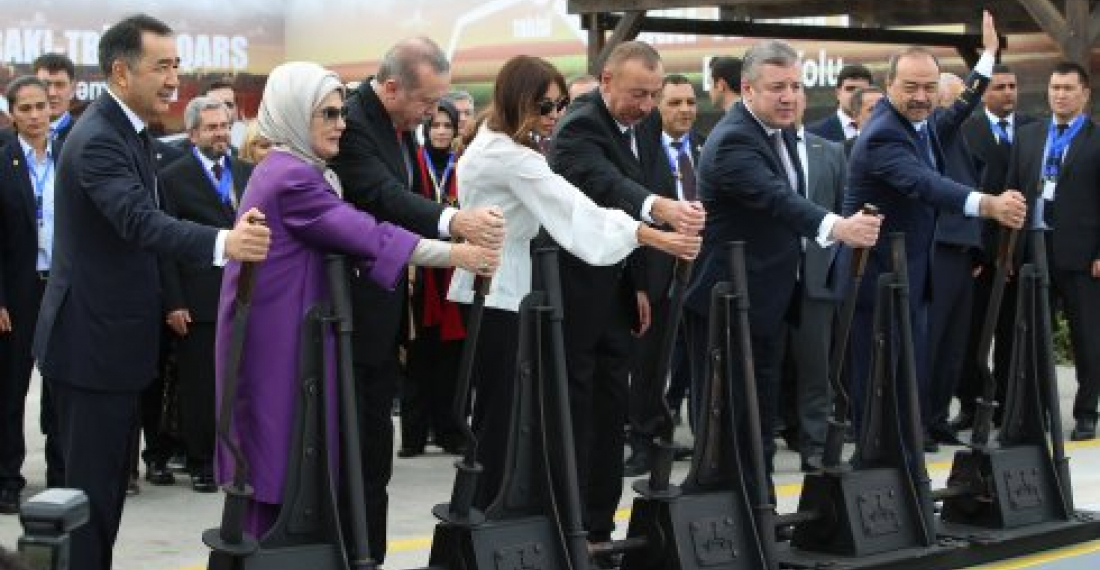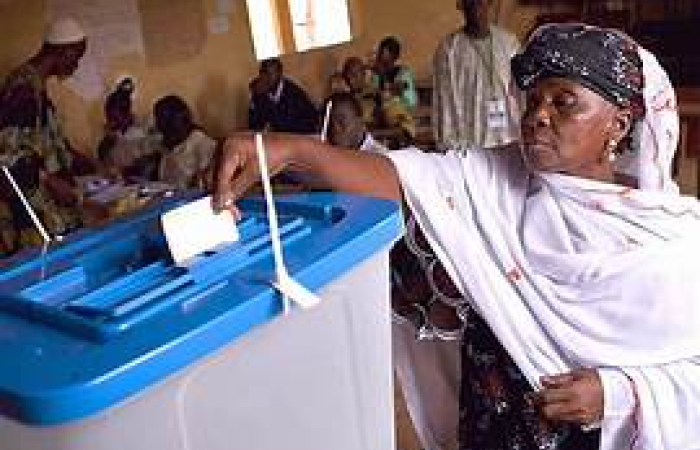A new rail link connecting Baku with Kars through Tbilisi was launched today at a ceremony attended by key regional leaders.
The leaders of Azerbaijan, Georgia and Turkey, as well as senior officials from Kazakhstan and Uzbekistan were present at the inauguration ceremony in Baku. The wives of the Turkish and the Azerbaijani leaders also attended the event.
Azerbaijan's president Ilham Aliyev said the railway project was the result of the "brotherhood" of the three countries involved. He said some believed it was "impossible" for the project to be realized "but, the three countries showed and proved that it is possible".
"Baku-Tbilisi-Kars is a historic, global project. This project will make [our] countries closer," he said.
Georgian Prime Minister Giorgi Kvirikashvili said the project was a bridge between Asia and Europe. "This line will both tie economies and people together," he added.
The Baku-Tbilisi-Kars (BTK) railway project was described by Turkish president Recip Tayip Erdogan as a crucial step for the future.The 826-kilometer (513-mile) railway project connecting Baku with Turkey's northeastern Kars province via Tbilisi was launched in 2007 and construction began in 2008.
Erdogan said the project was "priceless" since it was "laboriously and devotedly" carried out. "So, we declare the establishment of continuous railway link from London to China," the official Anadolu news agency quoted Erdogan as saying. The Turkish president said the railway would serve a million passengers a year and had 6.5 million tons of freight capacity.
Erdogan said the railway's contribution to the region would not just be economic: "The project is also political, bringing peace, security and stability" he said, adding that "socially, it will bring welfare".
Commonspace.eu political editor said in a comment that "the Baku-Tbilisi-Kars rail connection was an infrastructure project of exceptional importance since it was not only an important link in the ambitious project to connect China to Western Europe, but gives a new dynamic to regional co-operation in the wider Caucasus. The project has important political ramifications too - consolidating the already excellent relations between Azerbaijan, Georgia and Turkey, and opening many possibilities for other modes of future co-operation"
source: commonspace.eu with Anadolu news agency
photo: Leaders of Azerbaijan, Georgia and Turkey are joined by the Prime Ministers of Uzbekistan and Kazakhstan, as well as the wives of the Azerbaijani and Turkish leaders in a symbolic switiching on of the Baku-Tbilisi-Kars rail link. (picture courtesy of Anadaolu News Agency)






